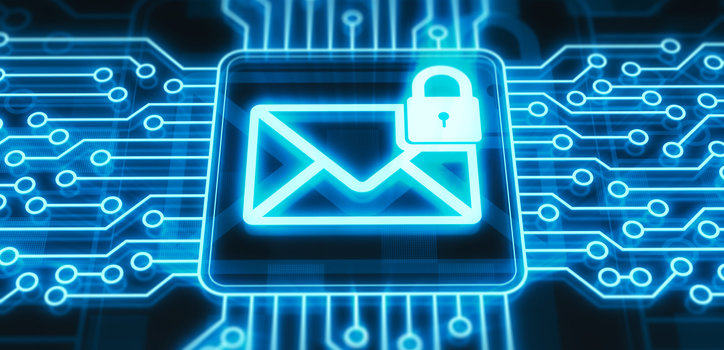As businesses increasingly rely on electronic communication, ensuring email compliance has become essential for maintaining legal standards and protecting sensitive information.
This guide explores the importance of secure email practices, outlining how adhering to robust email compliance protocols not only mitigates risks but also reinforces a company’s credibility. We will discuss key strategies to uphold stringent compliance standards and the crucial role they play in safeguarding business communications in a highly regulated space.
Quick Takeaways
- Email compliance ensures that your organization’s email practices adhere to legal standards to protect sensitive data and prevent breaches.
- Utilizing secure email gateways, encryption technologies, and thorough training programs are fundamental to maintaining robust email compliance.
- Addressing the challenges of high email volume, consistency in compliance, and outdated systems is crucial through centralized policies and advanced email management software.
- Adopting cloud-based solutions enhances email compliance by offering scalable, secure, and compliance-focused features, simplifying adherence to regulations.
Understanding Email Compliance and Its Regulations
Email compliance involves adhering to laws and regulations that govern the use and security of email communications within an organization. This adherence is crucial for protecting sensitive data from unauthorized access and ensuring that business operations align with legal expectations.
Regulations such as the General Data Protection Regulation (GDPR) in the European Union, the Health Insurance Portability and Accountability Act (HIPAA) in the United States, and the Sarbanes-Oxley Act (SOX) set strict guidelines on how data should be handled, especially concerning privacy, security, and transparency.
- GDPR mandates stringent data protection measures for any business dealing with EU citizens’ data, emphasizing the need for consent and the secure processing of personal information.
- HIPAA requires healthcare providers and their business associates to protect patient data with strong security measures, affecting how emails containing health information are managed.
- SOX focuses on the integrity of financial information, requiring that all business records, including emails related to finance, are retained for specific periods and are tamper-proof.

Understanding these regulations is the first step towards ensuring that your email systems are not just compliant, but also secure and effective in the face of audits and legal scrutiny.
Best Practices for Implementing Email Compliance
Implementing robust email compliance starts with a clear understanding of the regulations applicable to your industry and region. Here are key best practices to ensure that your email communications are both compliant and secure:
Secure Email Gateways
Deploy secure email gateways that filter incoming and outgoing messages for malware, spam, and phishing attempts. These gateways also ensure that sensitive data is not inadvertently sent outside the organization.
Encryption Technologies
Use encryption to protect the contents of your emails, making them readable only by intended recipients. Encryption is vital for protecting data in transit and at rest, preventing unauthorized access.
Policy Development and Enforcement
- Creating Policies: Develop comprehensive email policies that define acceptable use, data protection standards, and procedures for handling sensitive information.
- Training and Awareness: Regularly train employees on these policies and the importance of compliance. Ensure they understand the consequences of non-compliance, both for them personally and for the organization.
- Monitoring and Auditing: Implement monitoring tools to track compliance and conduct regular audits to ensure policies are being followed and are effective.
Adopting these practices not only helps in meeting legal requirements but also in building a culture of security and compliance within the organization. This proactive approach is crucial in minimizing risks associated with email communication and ensuring that your business operations remain above reproach.
Challenges and Solutions in Email Compliance
Despite best efforts, organizations often encounter significant challenges in maintaining email compliance. Some of the most common issues include managing the sheer volume of emails, ensuring consistent compliance across all communications, and integrating compliance solutions with existing IT infrastructures.
Volume Management
Organizations receive and send thousands of emails daily. Managing this volume while ensuring compliance can be daunting. Automated solutions that can flag non-compliant emails or unusual patterns help in addressing this challenge effectively.
Consistency in Compliance
Ensuring that every email, regardless of its origin within the organization, complies with relevant laws is a constant challenge. Centralized policies and continuous training can aid in maintaining consistency.
Legacy Systems
Many organizations operate on outdated technology that may not support the latest compliance requirements. Upgrading these systems or integrating new compliance solutions can be both costly and technically challenging.
Solutions:
- Implementing advanced email management software that includes compliance features can streamline the process and reduce human error.
- Regular updates and patches to existing systems, coupled with robust security measures, can mitigate risks associated with legacy infrastructures.\
- Centralizing email archiving and surveillance can help maintain consistency and ease the monitoring process across the organization’s communication channels.
By addressing these challenges with proactive strategies and the right technology, organizations can significantly enhance their compliance posture and mitigate associated risks.
Leveraging Cloud Communications for Enhanced Compliance
Cloud-based communication solutions offer numerous benefits for enhancing email compliance. These platforms are designed with security and compliance at their core, providing features that simplify the adherence to regulatory standards.
- Scalability: Cloud solutions can easily scale up or down based on the organization’s needs, accommodating fluctuations in email volume without compromising on compliance.
- Advanced Security Features: These platforms often include built-in security measures such as advanced encryption, intrusion detection, and data loss prevention, all crucial for maintaining compliance.
- Compliance-Specific Functionalities: Many cloud email providers offer features specifically designed to aid compliance, such as retention policies, detailed auditing capabilities, and user access controls.

Consider a hypothetical scenario where a mid-sized financial firm adopts a cloud-based email system. The firm benefits from enhanced security features that protect against data breaches and ensure that all communications are archived according to legal requirements. This transition not only simplifies their compliance efforts but also improves their overall security posture, making them more resilient against cyber threats.
Incorporating cloud communications into your email strategy not only enhances compliance but also offers a more efficient, secure, and manageable approach to handling business communications.
Secure Your Future Today with Intermedia
Email compliance is pivotal for safeguarding your organization’s integrity and customer trust. By implementing the outlined best practices and leveraging advanced cloud communication solutions, businesses can effectively meet the stringent requirements of email compliance. Proactive management of email practices ensures that your operations remain secure, compliant, and efficient.
Discover how Intermedia’s cloud communication solutions can enhance your email compliance efforts. Visit our website to learn more and take the first step towards securing your digital communications.
April 16, 2025
Explore other posts on these topics:



